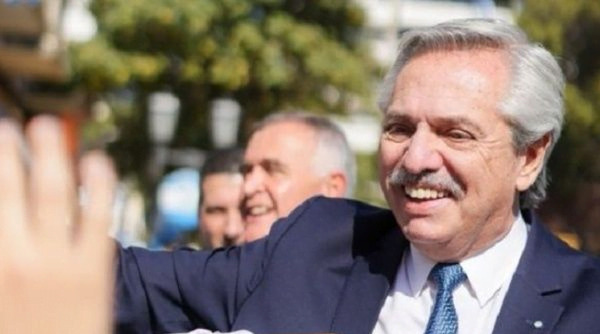
The president of Argentina Alberto Fernandez led this Saturday in Tucumán the official act for the anniversary of the declaration of the independence of the united provinces of La Plata, Argentina. | Photo: Twitter @ChaskiDigital
Buenos Aires, July 10 (RHC)-- Argentinean President Alberto Fernández, during a speech this Saturday in San Miguel de Tucumán during the official celebrations for Independence Day, harshly criticized those who "sow discouragement" among the people, referring to the political opposition, the media and business groups.
The Argentinean president called for unity after tensions in the ruling coalition of the Frente de Todos, following the resignation of the Minister of Economy and in the midst of protests against the rising inflation. "There is no political future if this first link, which is unity and which includes all of us, is not built and strengthened every day," said Alberto Fernandez as he called for unity.
President Fernández, during a speech this Saturday in the northern city of San Miguel de Tucumán on the occasion of the official ceremony for the Independence Day, harshly criticized those who “sow discouragement” among the people, referring to the political opposition, the media and business groups, who, in his opinion, create confrontations to separate the Argentinean nation.
In statements made to the local news channel C5N, the Argentinean president denied having differences "in substance" with the country's vice-president, Cristina Fernández de Kirchner. "I may have differences with Cristina, but I do not have them in substance. She represents the same interests as I do. I may have differences on how to implement one measure or another, but not on the substance," he said.
Tensions arose after Martin Guzman, the former Argentine Minister of Economy, reached an agreement with the International Monetary Fund (IMF) to pay the debt contracted by the government of former President Mauricio Macri, generating a break in the bloc of the ruling party.
Former Economy Minister Guzmán was harshly criticized, both by the opposition and by Kirchnerism itself, for the increase in inflation as well as for the economic program agreed with the IMF, which contemplated, among other points, a reduction of the fiscal deficit.
In the end, Guzmán resigned a week ago, a decision which the Vice-President described as an act of "political irresponsibility" and of “institutional destabilization.”

